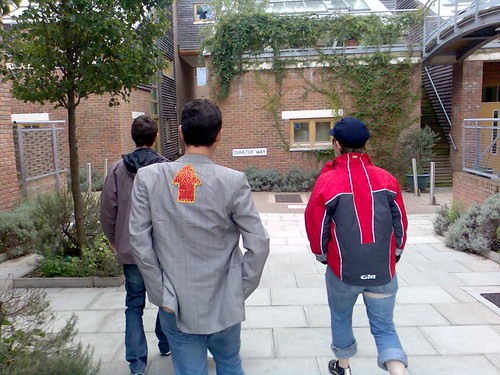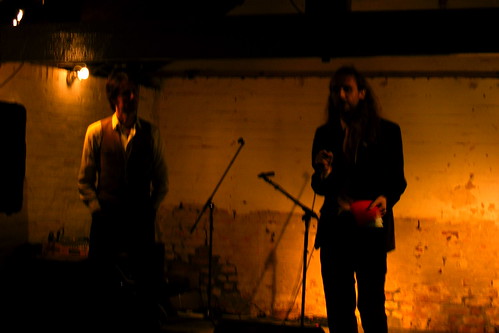A busy end to a busy year
I've never known a year in which I was so busy with so many projects as 2009. At times, I've felt like a walking case study in "spreading yourself too thin". But I've also been incredibly lucky in all the remarkable people I've had the opportunity to collaborate with.
As 2010 comes around, I'm going to be thinking seriously about how to achieve a slightly saner balance between work and reflection, dreams and responsibilities, getting things done and spending time with the people who matter to me. In the mean time, though, it's good to be finishing the year with a series of events that reflect the different directions I've been pushing in - and which bring together many of those collaborators.
Please join me for any or all of the following...
Wednesday 2nd December, 7 till 9pm - DIWO at the Dark Mountain private view - HTTP Gallery
For the last six weeks, I've been acting as "guide" to Do It With Others at the Dark Mountain - a collaborative art project organised by Furtherfield.org. Artists, technologists, writers, activists and others were invited to correspond with each other online and offline, producing work in response to the Dark Mountain manifesto.
Come along to HTTP Gallery to see where this led us. The evening will include a live performance, representing the online controversy which was one of the defining moments of the project.
Nearest tube Manor House - more details on finding the gallery here.
Thursday 17th December, 9.30am till 3.30pm - "Innovate to Save" - County Hall, Maidstone, Kent
This is a free one-day conference organised by the Technology, Research and Transformation Team at Kent County Council.
I'll be talking about the rise of the "Why Don't You...?" Web - people using online tools to organise real world activities, rather than to virtualise more areas of life. I'll be drawing on my experience as co-founder of School of Everything and Signpostr, and trying to connect what we've learned from these projects to the challenges facing public services in a time of shrinking budgets. There's an impressive range of other speakers, so I hope I'll have something useful to contribute.
Book for Innovate to Save.
Thursday 17th December, 4pm till 9pm - Space Makers Agency / Brixton Village Christmas Celebration
I'll be rushing back from Maidstone to join the Christmas celebration at Brixton Village indoor market. Space Makers Agency has been working with the market's owners, the local council, existing tenants, artists, activists and entrepreneurs within Brixton to bring a mixture of temporary and long-term occupants into twenty empty shops around the market.
The first wave of new businesses and projects are setting up shop over the next week or two, and we're inviting everyone to come down and welcome them with mulled wine and seasonal entertainment from 4pm on the 17th.
The cafes and restaurants around the market should set your tastebuds watering - while, with late night opening until 9pm, it's a chance to do some Christmas shopping and support both new and existing businesses in the market.
So do join us to welcome the new occupants – and celebrate the past and future of this wonderful 1930s indoor market.
RSVP on the Brixton Village event page on Space Makers Network
Friday 18th December - launch of COMMONSense Apazine - Access Space, Sheffield
UPDATE: LONDON LAUNCH POSTPONED UNTIL 2010
It's taken a while, but the magazine I edited for Access Space last year is finally being published. All kinds of people submitted thoughts, stories and art work exploring the idea of "the commons" and of "common sense".
If you're in Sheffield, come and join us for the launch party from 5.30pm - details here.











